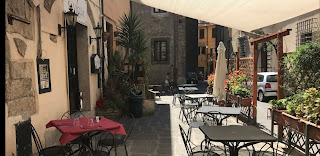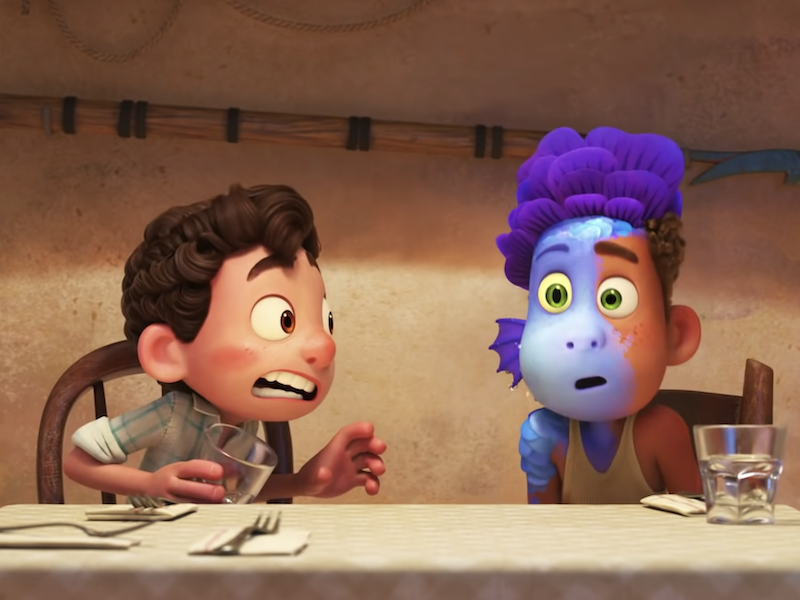It was the end of a wonderful and weird adventure in Italy this past July. (Lost luggage, stolen passport, dishonest cabbies mixed with beautiful sights, delicious flavors and lovely people.) We had a long drive in from Florence to the Rome airport where we would return our rental car and stay one night in Fiumicino before flying home. My wife Audrey found an old Conde Nast Traveler article which described six places you MUST stop on the way from Florence to Rome. The town of Orte was just the right distance for a lunch break, if a bit late in the day. The article recommended Trattoria Saviglia so after some delicate negotiating of mountaintop streets designed for pack animals, we parked and found the restaurant.
It was a hot day, like the the entire summer had been, and there was one diner on the patio, just getting ready to leave. And it was late in the afternoon. But the teenager waiting tables shouted inside and was told to seat us. By the time we were served, other tables had filled. A family of five sat near us. We could hear them well enough to tell they were from our part of the world, but close enough to hear their conversation. The mother and daughter left the table, and after a few minutes the two boys - both seemed to be pre-teens - began singing loudly "Da-vid melekh Yis-ra-el.." To which Audrey and I reflexively joined in with "chai, chai, pizza pie!"
 |
| The patio at Trattoria Saviglia |
I don't know what cause the dad's "Jewdar" to ping. I imagine the way we look had a lot do with it. Perhaps we said something to one another about the synagogue we had visited in Florence, speculated that if we had lived near Orte 500 years ago, we would have been serfs, as we often were in Europe. Ping it did.
The boys were day school students in their hometown of Vancouver. The family was on a six week driving vacation through Italy. Orte is roughly the size of a large neighborhood on a hilltop overlooking the highway and the Tiber River. (We learned it is pronounced tee-bear in Italian - who knew?) How two carloads of North American Jews, one from the west coast and one from the east, managed to find themselves on the patio of a restaurant in Orte on a hot Friday afternoon is... what we should have expected.
My Eisner camp bunkmate, Larry Milder, famously wrote the song "Wherever you go, there's always someone Jewish." So many campers, youth groupers and adults have enjoyed this cute tune. I think we like it because it is cute and engaging. The real magic of this song is that it speaks a truth.
 |
| The view from Orte |
In that moment of shared recognition and song, we shared something special. After 10 days of churches, medieval and renaissance art, museums and synagogues that told the Jewish story of Italy, we found our people. We had met Jews. These were North American Jews, who shared so many characteristics with us - language, local references, Jewish summer camp - that we felt a deeper connection.
There is something deeper here. I am not sure I can put a finger on it. It felt good though, and left us with bigger smiles on our faces than we had before lunch. And yes, it was a delicious lunch. If you find yourself near Orte, do stop in.

.jpg)




